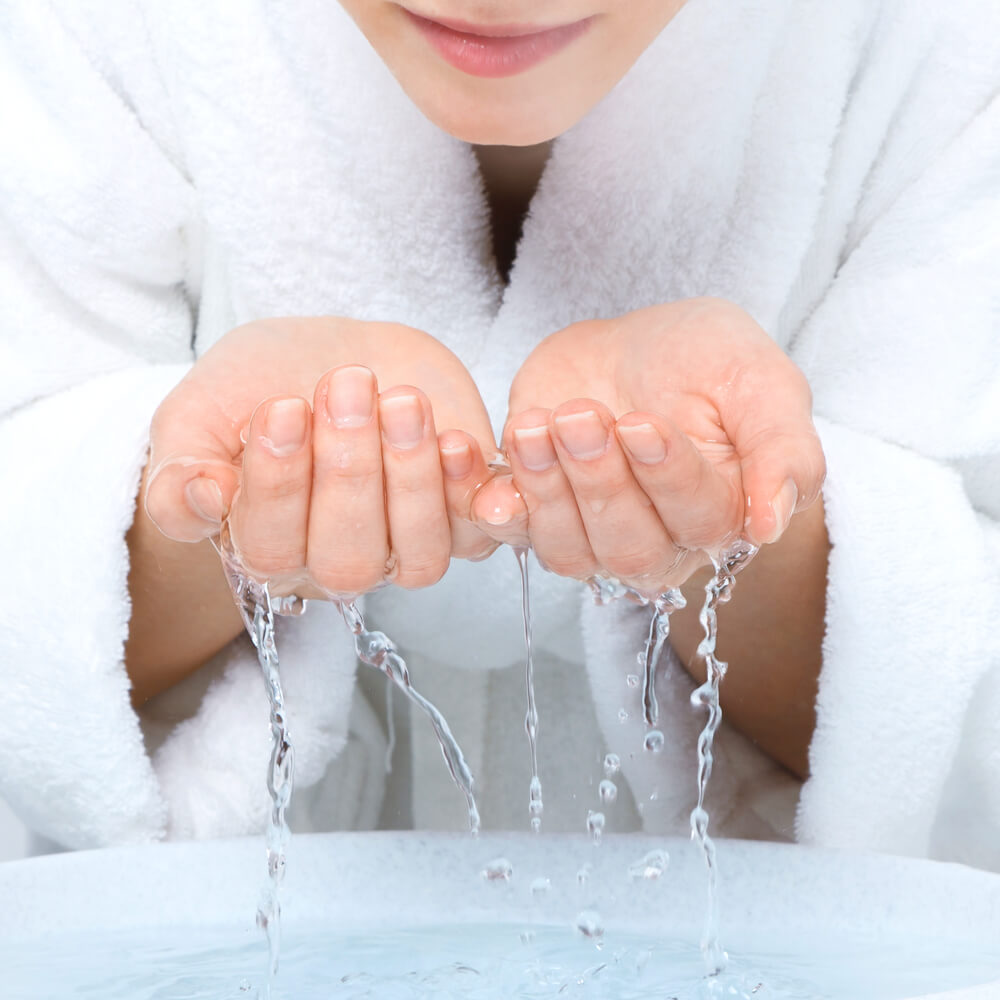
Young father and his toddler cooking
Almost everyone is familiar with the term “hard water” because many of us experience the annoying results of having mineral-rich water flowing into our homes. While this type of water isn’t harmful to consume, a hard water scale can, over time, negatively affect the plumbing and appliances in your home—and possibly your skin and hair. But did you know that hard water can also affect your home cooking?
If your home is flowing with hard water, you may be experiencing baking hardships and less-than-tasty results.
How Hard Water Affects Home Cooking
An article found on TasteInsight.com details how hard water affects our cooking. “Statistics from the United States show that 85% of homes have hard water. And hard water will change the way that your food tastes.”
From boiling to baking, the appearance, preparation, and taste of foods can be disappointing.
Pitfalls in Baking
When baking doesn’t produce the yummy pies that you anticipate, it could be the hardness of your water. The minerals in water affect a dough’s gluten and yeast, resulting in a rubbery texture which makes it tougher to knead.
According to TasteInsight, a high concentration of hard water will “cause a tightening effect on gluten” and “decrease fermentation rate.” To avoid this, it’s recommended to leave your water out overnight for the chlorine to dissipate.
High alkalinity is another result of hard water. The ideal alkalinity for baking is a pH “just below 7,” which will ensure that you get the best-baked treats every time you pop that dough in your oven.
Baking Tips: For baking beginners, we thought you would enjoy some tips for baking at home. The Daily Meal shares a list of “ingenious hacks for the amateur baker.”
Problems with Stovetop Cooking
While baking with hard water can lead to some problems, cooking with water that’s high in calcium and magnesium can also bring negative results. Veggies, for example, will not look as bright from blanching, and rice may have a harder texture. Hard water can also have taste altering effects on boiled foods.
When you have water that produces a smell, you are probably not enjoying the fruits of your labor in the kitchen. And speaking of labor, it can take some elbow grease to clean up the hard water stains from stainless steel cookware.
Cooking Safety Tips: It’s never too early to learn about stovetop safety. Kitchn is an excellent resource for safe cooking tips and enjoying life in the kitchen.
Water Softening Systems Help Improve Baking and Cooking
As the TasteInsight article suggests, when your foods do not feel or taste the way you know they should, it’s time to address your hard water problem. Along with baking and cooking reasons, there are multiple benefits to installing a water softening system in your home. One benefit is the savings you’ll get in comparison to buying drinking water.
Water Testing is the First Step to Improving Home Cooking
Understanding what is flowing through your home’s pipes is the best way to learn the hardness of your home’s water—along with any other problems that may be flowing out of your kitchen faucet. It’s better to get the right system for your home that addresses every problem.
It’s easy to fix your baking and cooking perils and problems from the effects of hard water. At Advanced Water Softening, we offer a FREE and NO CONTACT water test.
With over four decades of serving Northern New Jersey, we are the experts when it comes to the solutions you need to improve your home’s water. We’re here to help you prepare and serve healthy and tasty meals.





